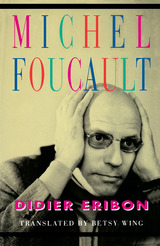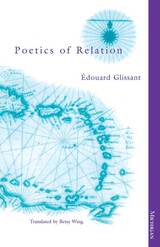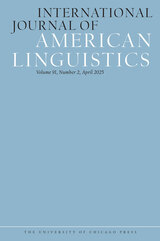
At the time of his death in 1984, at the age of fifty-eight, Michel Foucault was widely regarded as one of the most powerful minds of this century. Hailed by distinguished historians and lionized on his frequent visits to America, he continues to provoke lively debate. The nature and merits of his accomplishments remain tangled in controversy. Rejecting traditional liberal and Marxist "dreams of solidarity," Foucault became the very model of the modern intellectual, replacing Sartre as the figure of the eminent Parisian and cosmopolitan master thinker.
Foucault himself discouraged biographical questions, claiming that he was "not at all interesting." Didier Eribon's captivating account overthrows that assertion. As a journalist well acquainted with Foucault for years before his death, Eribon was particularly well placed to conduct the dozens of interviews which are the cornerstone of this book. He has drawn upon eyewitness accounts by Foucault's closest associates from all phases of his life--his mother, his schoolteachers, his classmates, his friends and enemies in academic life, and his celebrated companions in political activism, including Simone Signoret and Yves Montand. Eribon has methodically retraced the footsteps of his peripatetic subject, from France to Sweden to Poland to Germany to Tunisia to Brazil to Japan to the United States. The result is a concise, crisply readable, meticulously documented narrative that debunks the many myths and rumors surrounding the brilliant philosophe--and forces us to consider seriously the idea that all his books are indeed, just as Foucault said near the end of his life, "fragments of an autobiography."
Who was this man, Michel Foucault? In the late 1950s Foucault emerged as a budding young cultural attaché, friendly with Gaullist diplomats. By the mid-1960s he appeared as one of the avatars of structuralism, positioning himself as a new star in the fashionable world of French thought. A few months after the May 1968 student revolt, with Gaullism apparently shaken, he emerged as an ultra-leftist and a fellow traveler of Maoists. Yet during this same period, Eribon shows, he was quietly and adroitly campaigning for a chair in the College de France--the very pinnacle of the French academic system. This book does more than follow the career of one extraordinary intellectual. It reconstructs the cultural, political, and intellectual life of France from the postwar years to the present. It is the story of a man and his time.

In Poetics of Relation, Glissant turns the concrete particulars of Caribbean reality into a complex, energetic vision of a world in transformation. He sees the Antilles as enduring suffering imposed by history, yet as a place whose unique interactions will one day produce an emerging global consensus. Arguing that the writer alone can tap the unconscious of a people and apprehend its multiform culture to provide forms of memory capable of transcending "nonhistory," Glissant defines his "poetics of relation"--both aesthetic and political--as a transformative mode of history, capable of enunciating and making concrete a French-Caribbean reality with a self-defined past and future. Glissant's notions of identity as constructed in relation and not in isolation are germane not only to discussions of Caribbean creolization but also to our understanding of U.S. multiculturalism. In Glissant's view, we come to see that relation in all its senses--telling, listening, connecting, and the parallel consciousness of self and surroundings--is the key to transforming mentalities and reshaping societies.
This translation of Glissant's work preserves the resonating quality of his prose and makes the richness and ambiguities of his voice accessible to readers in English.
"The most important theoretician from the Caribbean writing today. . . . He is central not only to the burgeoning field of Caribbean studies, but also to the newly flourishing literary scene in the French West Indies." --Judith Graves Miller, University of Wisconsin, Madison
Édouard Glissant is Distinguished Professor of French at City University of New York, Graduate Center. Betsy Wing's recent translations include Lucie Aubrac's Outwitting the Gestapo (with Konrad Bieber), Didier Eribon's Michel Foucault and Hélêne Cixous's The Book of Promethea.
READERS
Browse our collection.
PUBLISHERS
See BiblioVault's publisher services.
STUDENT SERVICES
Files for college accessibility offices.
UChicago Accessibility Resources
home | accessibility | search | about | contact us
BiblioVault ® 2001 - 2025
The University of Chicago Press









